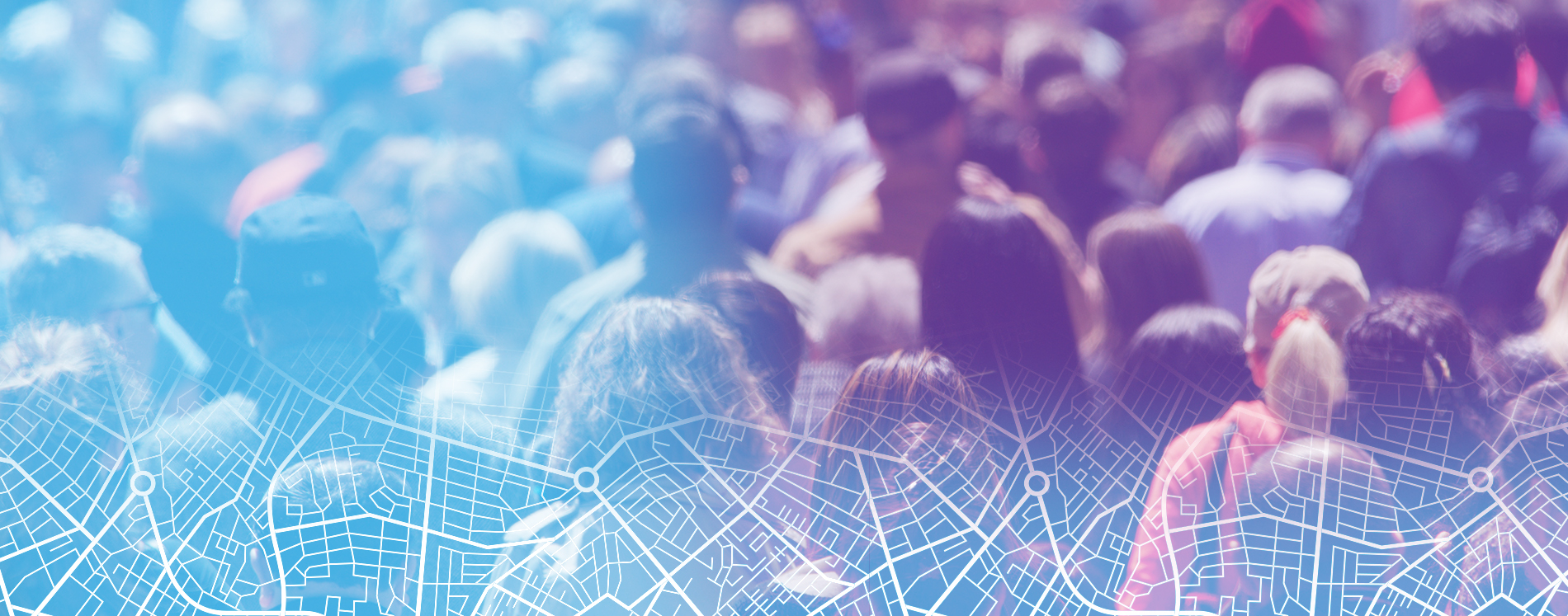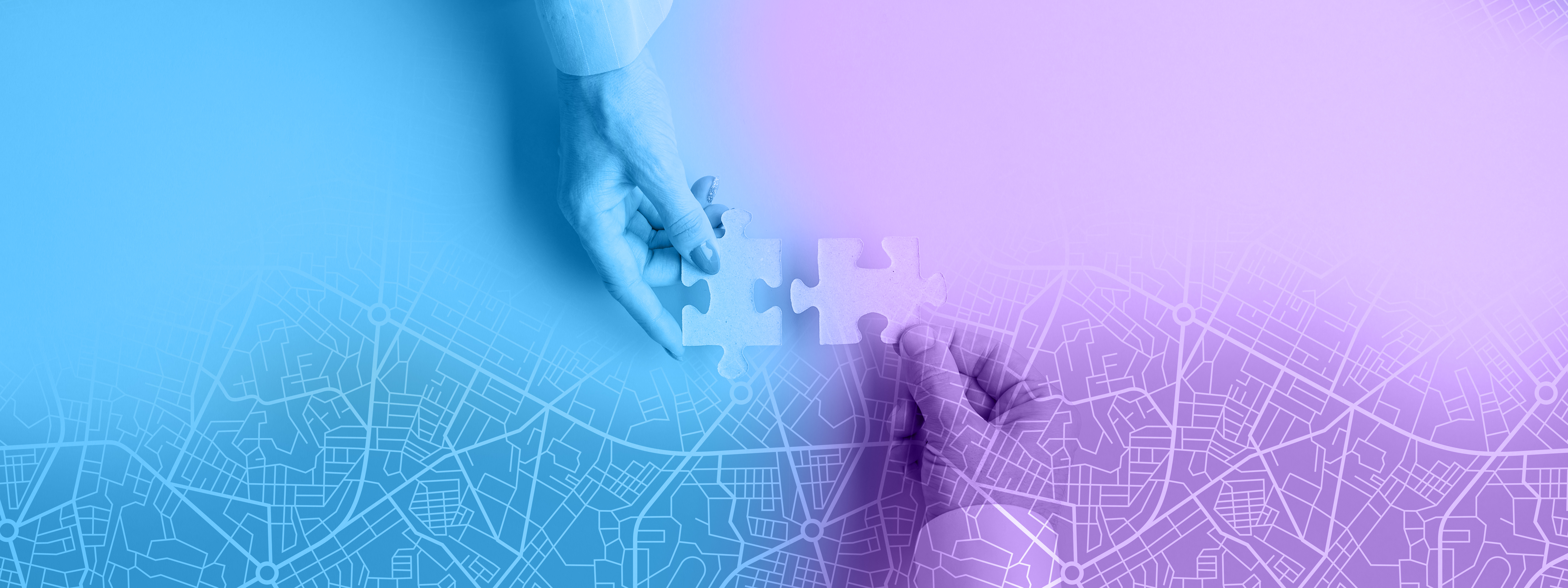From France to Greece
IncluCitiesfinished the 3rd and at the same time the last round of Study Visits to the mentee cities.
A very valuable opportunity to learn more about the current situation related to integration and inclusion of migrants on the ground, boost the relationship between the two mentoring cities and associations, check where they are in the process of change and to help them consolidate the city's action plan. These Study Visits are organised by the participating cities and the associations of local and regional governments.
From 24 to 26 April we visited Saint Jean de la Ruelle, part of Orleans in France.
Together with Brulocalis, BAPA Brussels as part of the City of Brussels, and the consultant Migration Work, we were welcomed in the city of Saint-Jean de la Ruelle to learn how the city is preparing to implement change related to migrant women's inclusion. The study visits followed the theme of 'Conducting a strategic assessment of the needs of migrant residents and developing an appropriate, gender-sensitive response'.
The municipality and the AFCCRE organised an electoral evening on 24th (to see the results and learn more about the local votes in the French presidential elections).
A welcome speech by the Mayor kicked off the first working day. Mr. Chaillou told the story of Saint Jean de la Ruelle as a changing city that saw its major expansion during the 1960s-70s as a working-class municipality, with a range of industries drawing in labour first from rural areas, then from Southern Europe. The municipality took a lead role in providing services to different sections of the population: youth and children, families and older people. An almost total reliance on the municipality to provide services since the 1960s has left the community and voluntary sector underdeveloped. The city still plays a major role in the reception of people from migrant backgrounds and is currently seeing the arrival of Ukrainian people. They are revitalising their twinning project with Niepolomice, a Polish city at the border with Ukraine and needs support.
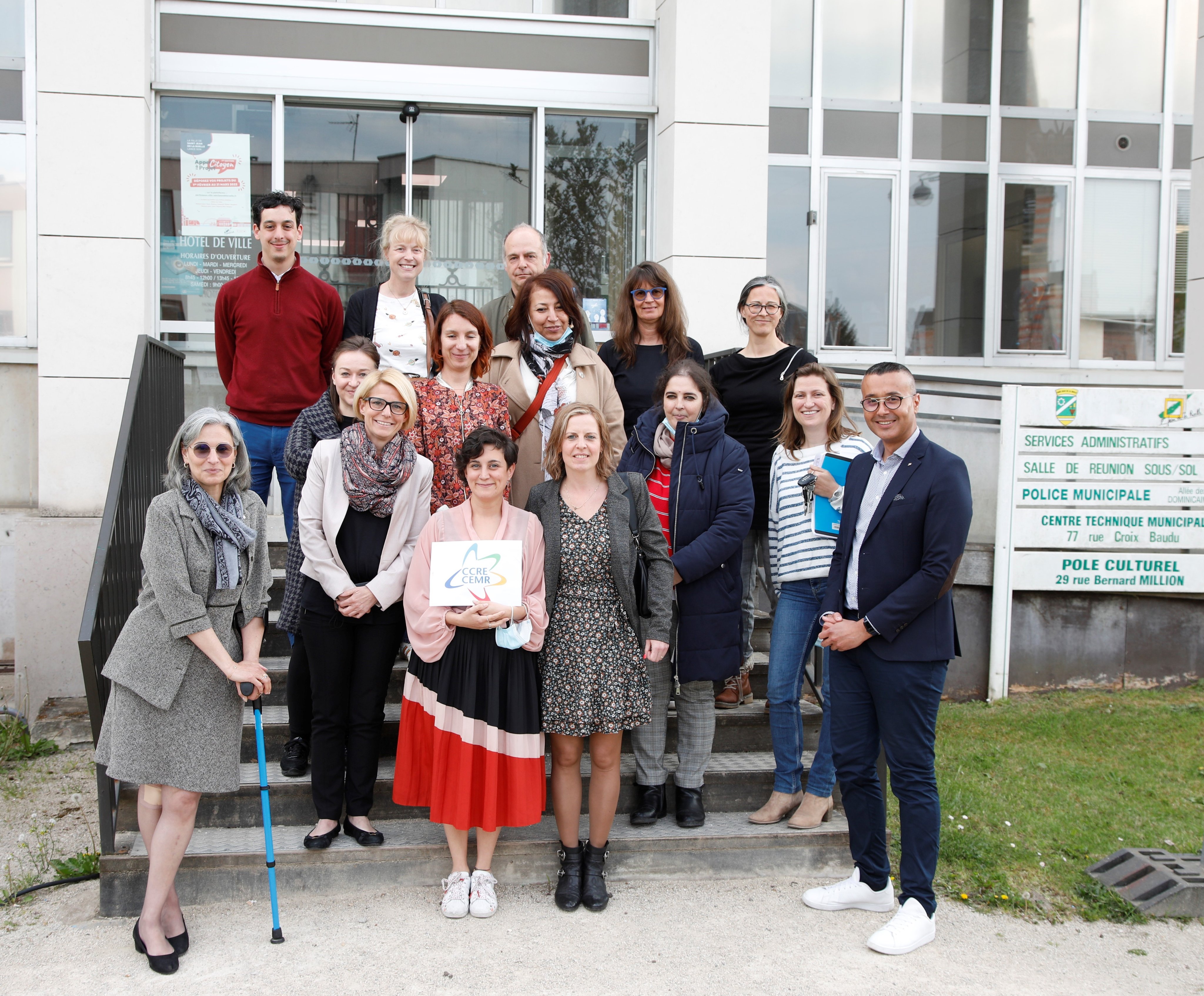
Deputy Mayor Fabien Riviere da Silva took participants on a tour across the city to see the points relevant for migrant inclusion from housing, cultural community buildings, libraries, and facilities for children's daycare. He explained the development and current state of integration-related programmes. The afternoon was dedicated to the presentation of the projects Maison des Femmes and Mision Egalite, followed by work in groups on topics related to migrant women integration.
The last morning of the visit continued with the exchanges, lessons learned from Brussels partners and a recap of the study visit.
A valuable moment when brainstorming on how to reach out to potential participants came from the Maison des femmes (City of Brussels, BAPA BxL). According to their experience, you should treat it like an election campaign and go out and meet women where they are e.g. go to the market, doctor, playpark, swimming pool, cultural events with flyers, and make an appointment for women to come in.
Women must get pleasure out of coming. Start by saying come and have breakfast to talk about our new project. Then suggest e.g. cooking, a good gateway activity, because it’s a good way of them showing something they are good at doing and having a chance to chat. There’s no point in asking what they want: they might be too shy or they might ask for the moon.
Summing up the day, there was all round agreement that a real visit was very much better than working on zoom: being able to see the city made it more real. Those who were new to the project found the approach different and exciting. Participants remarked on the power of “collective intelligence” and the challenge of translating the learning to the European level.
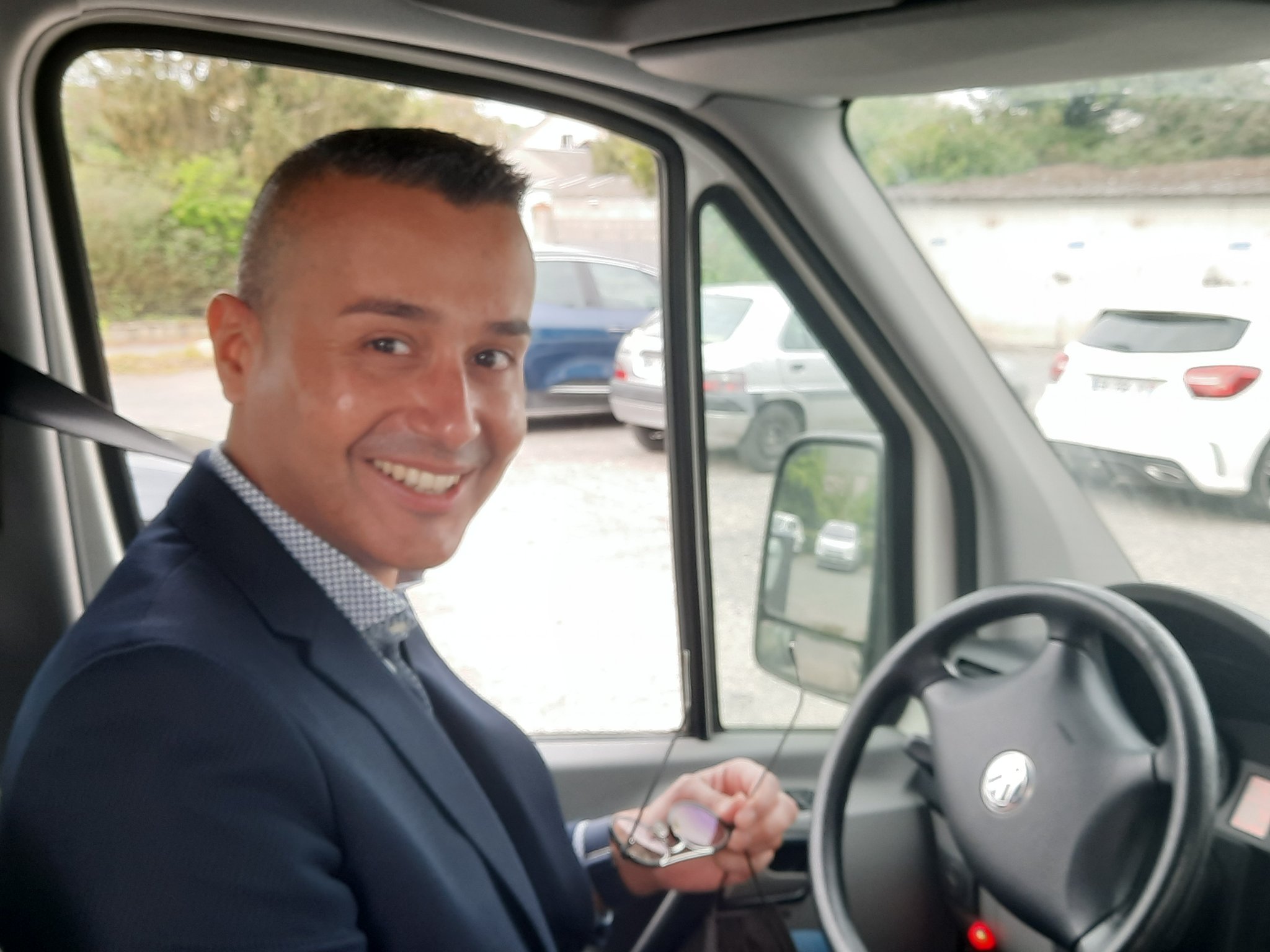
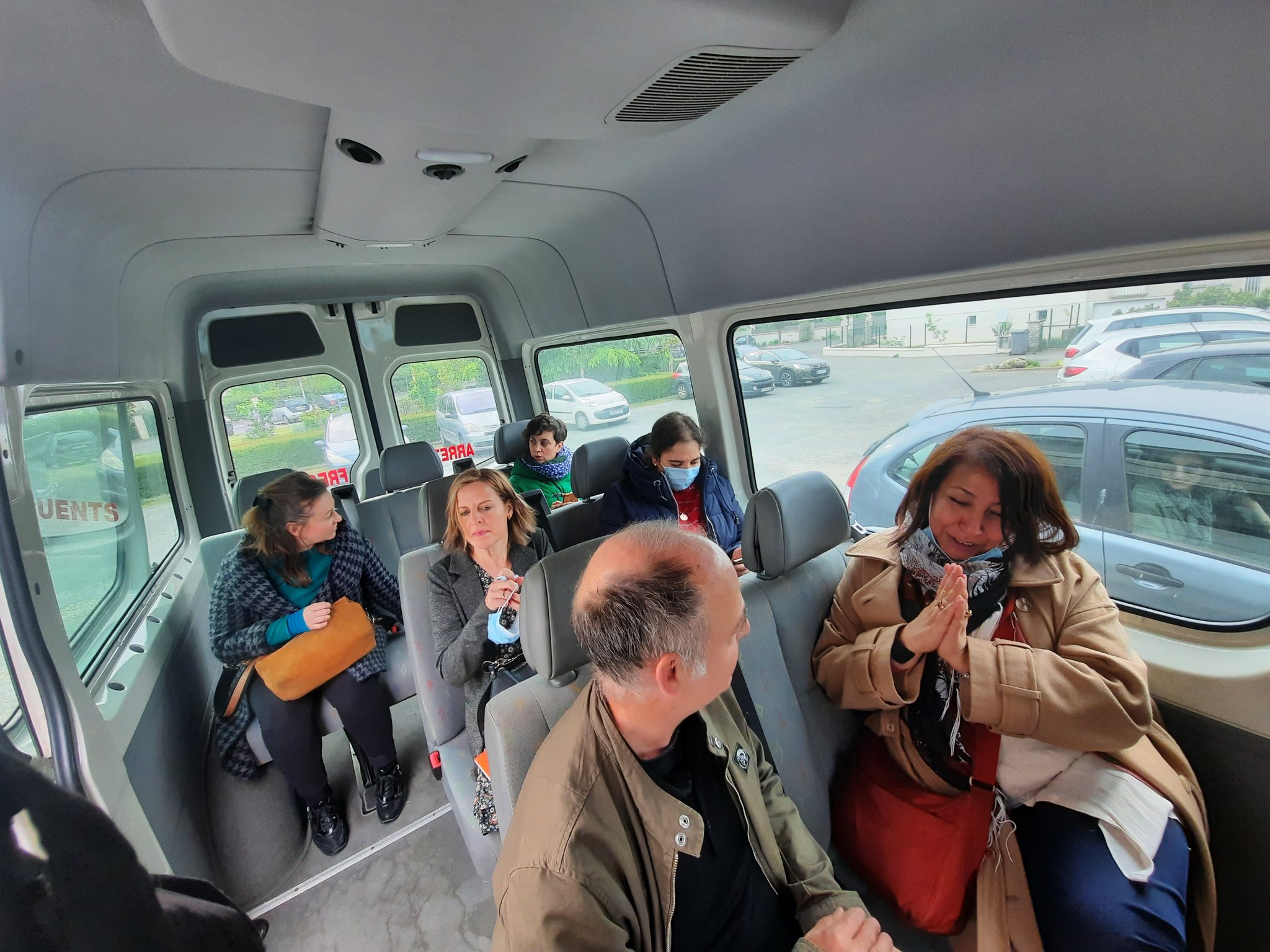
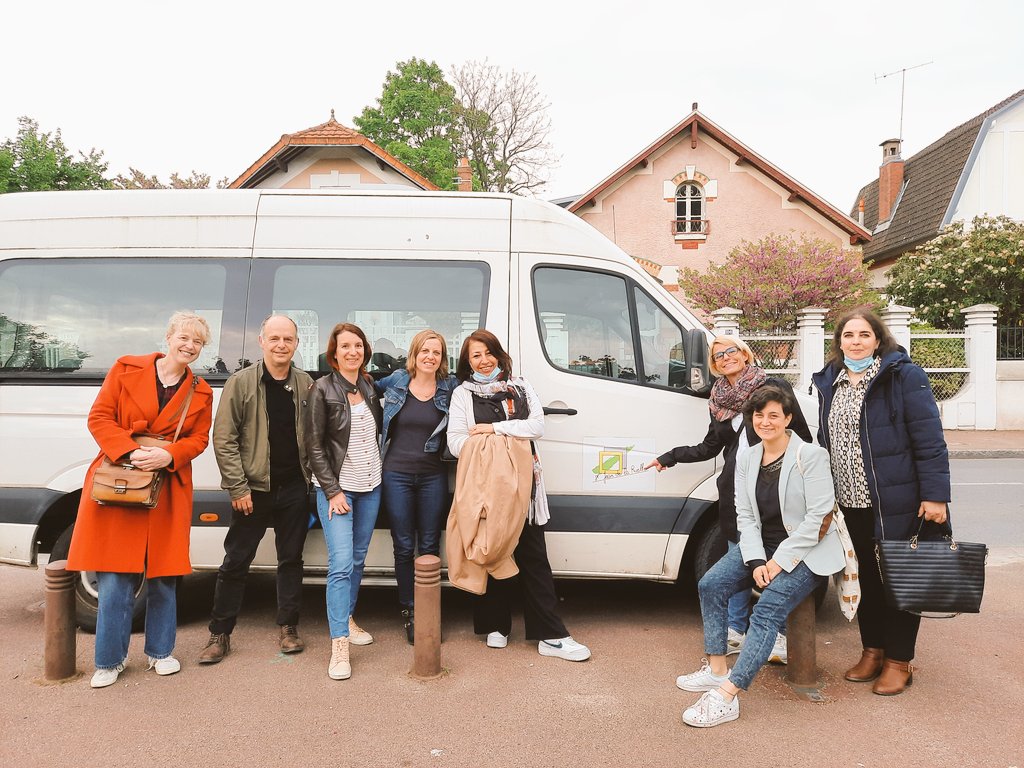
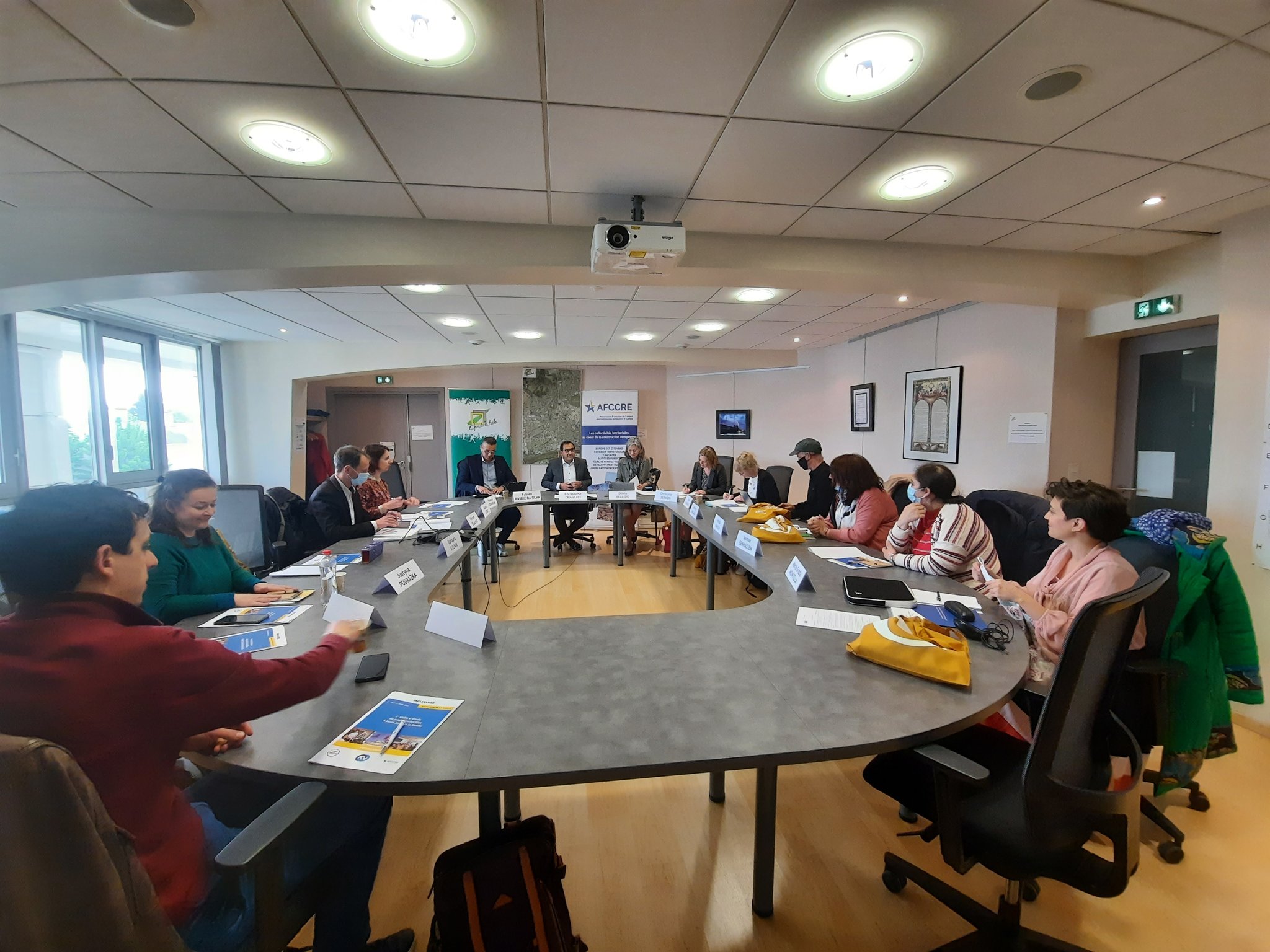

23 - 25 May IncluCities Study Visit in Jelgava, Latvia (LALRG)
This time we went to Latvia, the visit was hosted by the city of Jelgava and supported by the Latvian association of local and regional governments (LALRG). CEMR, together with BRULOCALIS, representatives from the mentor city Schaerbeek and Migration Work learned about existing local practices around integration in Jelgava.
Latvia has approximately 2 million inhabitants. Latvian is the official state language and one of the oldest languages in Europe. Since its independence, Latvia has been referred to as one of the Baltic countries. It is boarded by Estonia to the north, Lithuania to the south, Russia to the east, and Belarus to the southeast, and shares a maritime border with Sweden.
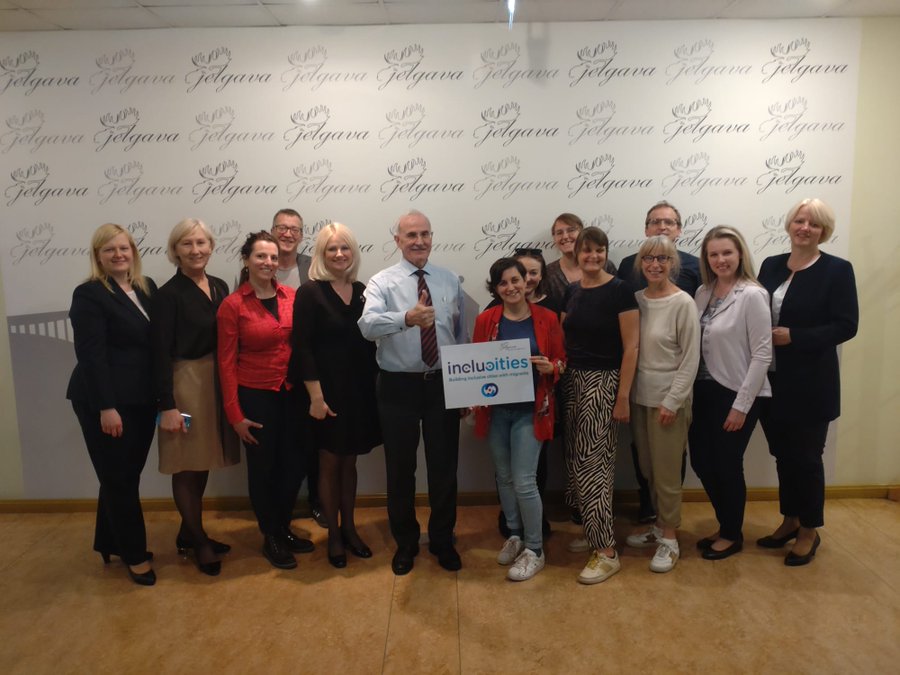
The special focus was on their recent challenge, welcoming refugees from Ukraine. Amongst others, we met two Oksanas from Ukraine who found refuge with their children in Jelgava. They have a job, children go to school and they hope one day to go back home. Until then, they are happy to be safe in a country that is very much like Ukraine.
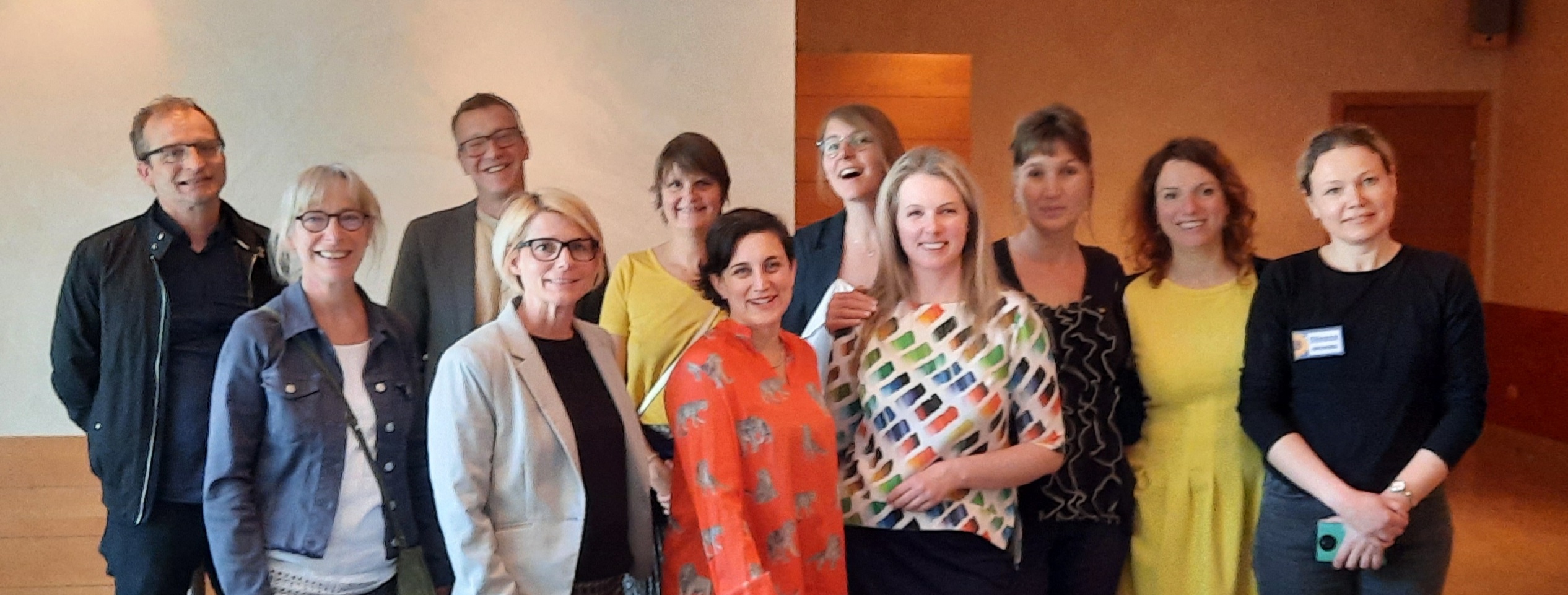
Currently, there are over 1000 refugees who fled the war in Ukraine residing in Jelgava. Due to the rapid and unpredicted migration in the context of the war in Ukraine, Jelgava had to set up an operational information centre to offer newcomers immediate support in registering, housing, access to basic services, education, and employment. The city that is not used to hosting so many people from elsewhere, welcomed refugees from Ukraine in a warm way. As we have heard from the Ukrainian refugees themselves, they like it in Latvia. "The landscape is similar to the one in Ukraine, people can speak Russian, so we can communicate well. Children also go to the Russian schools in Jelgava, which makes things much easier." Around one-third of the population of Latvia are Russians.
Integration of newcomers through language learning and acquiring knowledge of the Latvian history and traditions is a long-term goal of integration that Jelgava is also following in the IncluCities theme: Improving formal and informal opportunities for language learning for newcomers and established minorities. This study visit explored opportunities and initiatives already in place and reflected on future actions that could improve their local integration and inclusion practices.
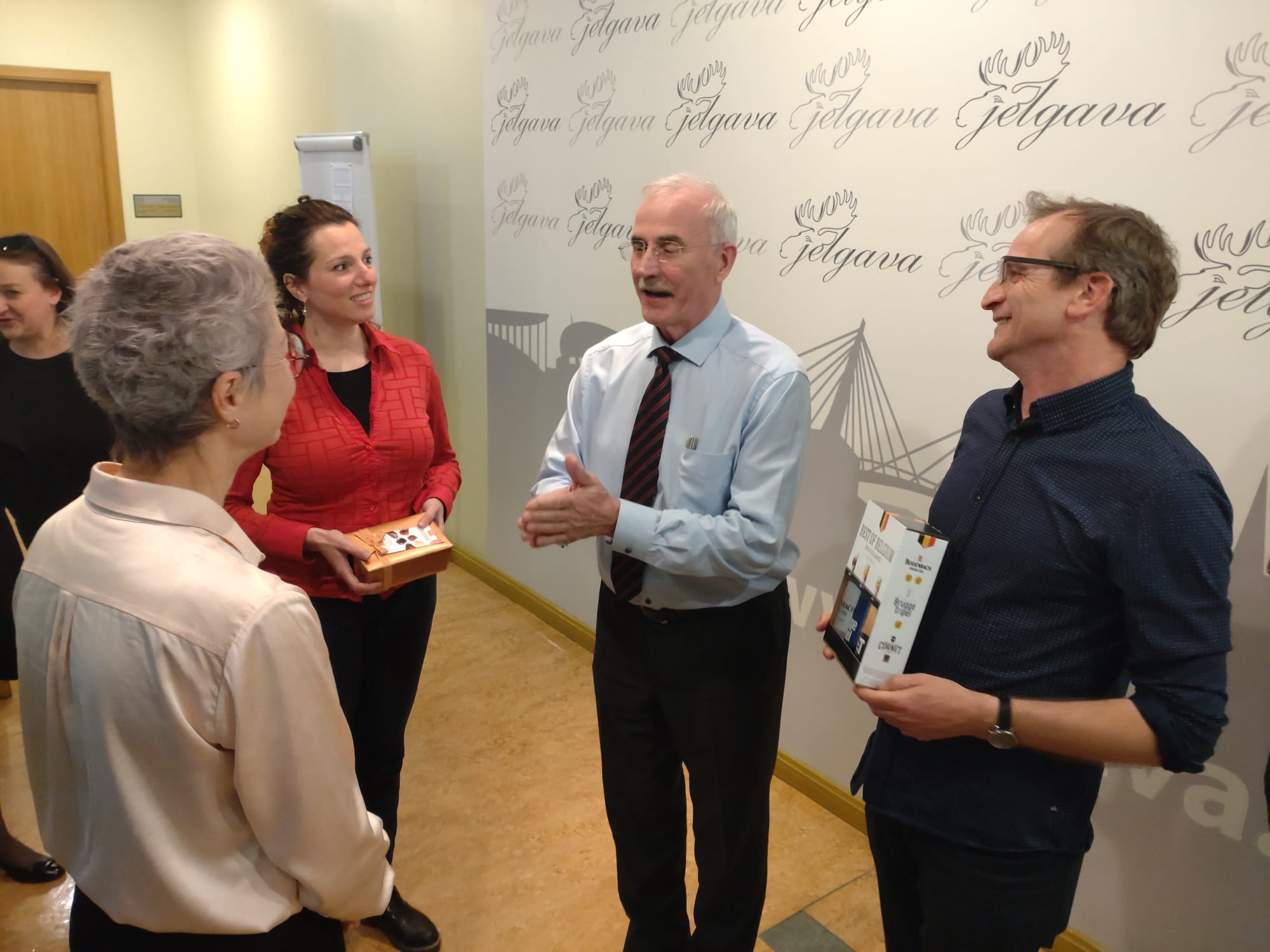
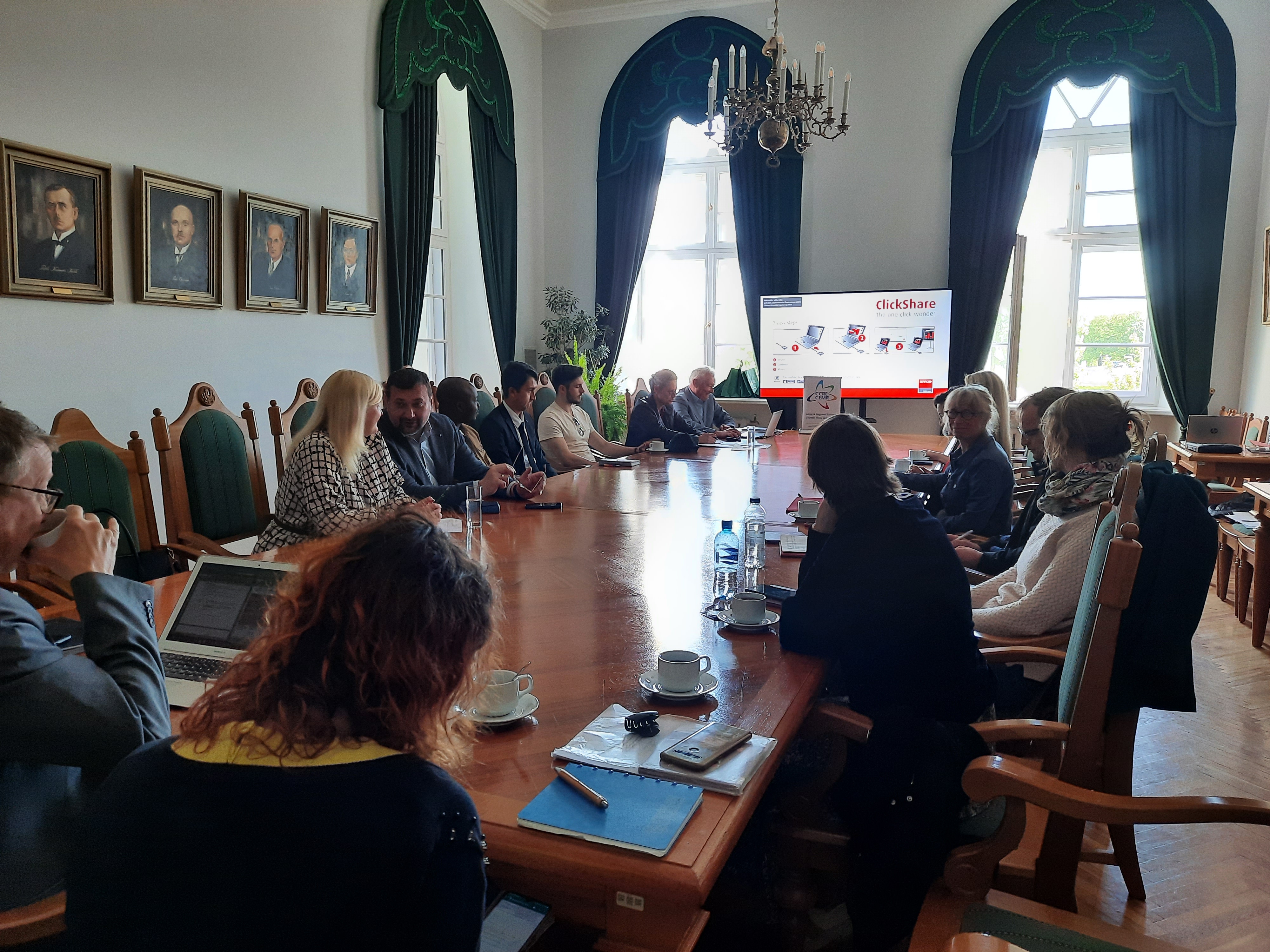
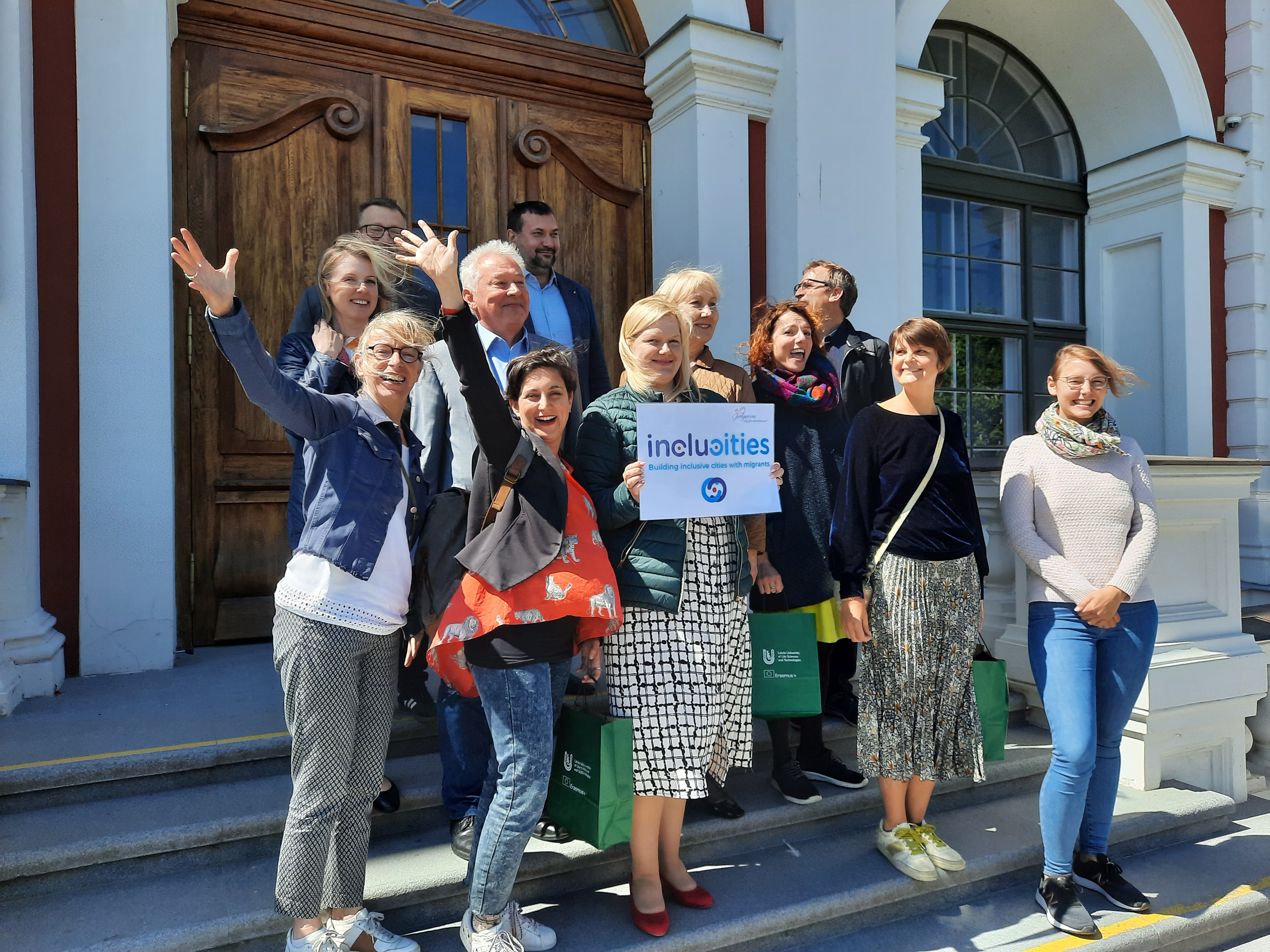
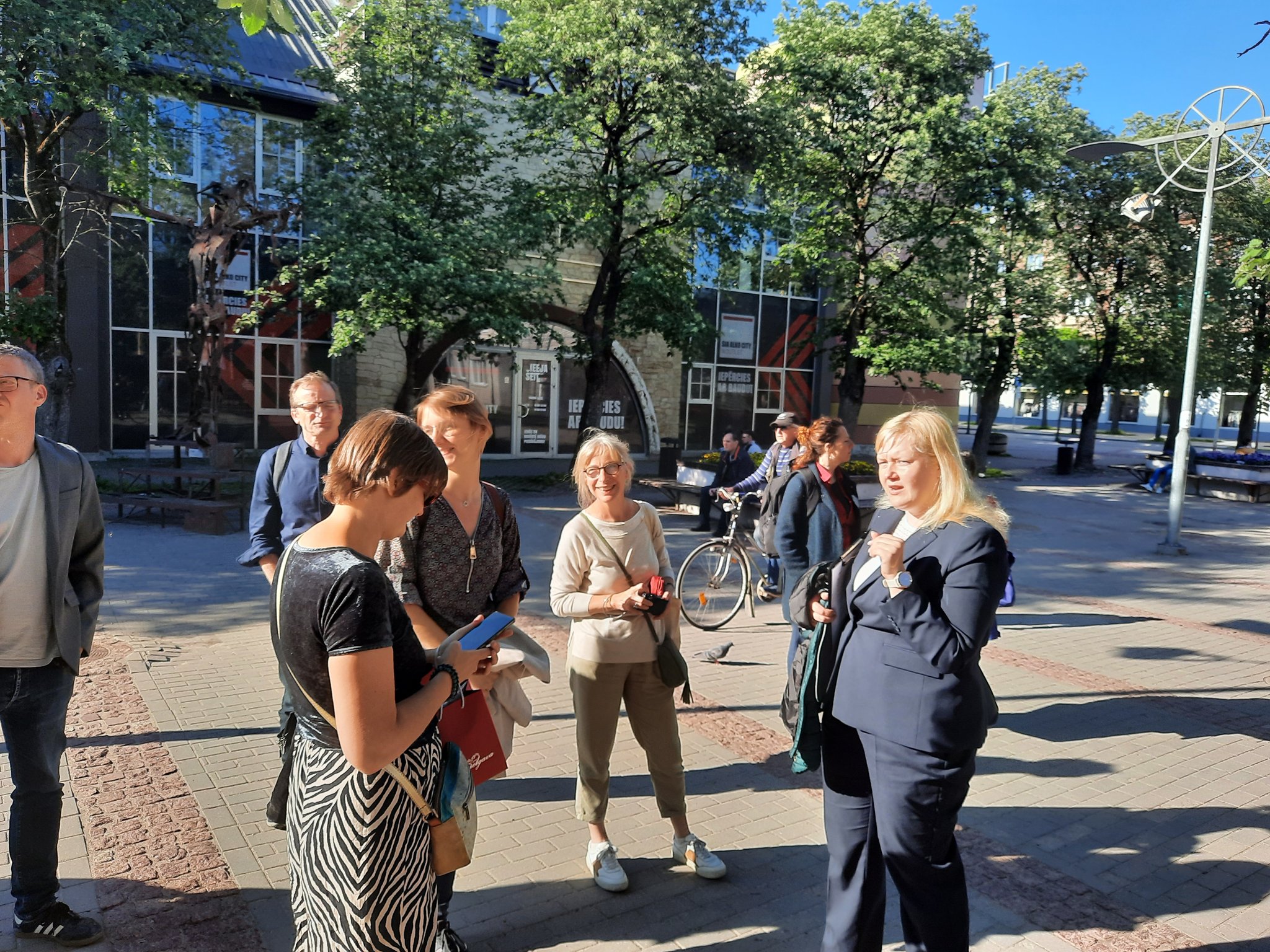
13 - 15 June, IncluCities Study Visit in Capaci, Italy (AICCRE)
CEMR project coordinator Maria Grazia Montella, together with the representative of the mentor City of Mechelen, VVSG and the consultant Ceri Hutton from the Migration Work, met in Sicily. The Study Visit was hosted by the Capaci Municipality and Mayor Pietro Puccio with the support of AICCRE internationale. this Study visit aimed to check the state of play in the development of the action plan to 'Build a vision of a city for all', and learn more about initiatives and improvements the city has started implementing on the ground.
After the welcoming lunch with the Mayor, participants were invited for a brief tour of some of the more historical buildings in Capaci, highlighting some of the ‘public art’ which has been done in recent times to stimulate debate and involvement in public spaces by a range of associations and individuals. Participants learnt that the municipal meetings in Capaci happened when possible in the summer months ‘in the open air’, on one of the pedestrianised squares, and participants discussed how this promoted a sense of openness and transparency amongst Capaci citizens. The desire was to both look, and be, open and transparent – Capaci for all (Tutti Capaci).
![]()
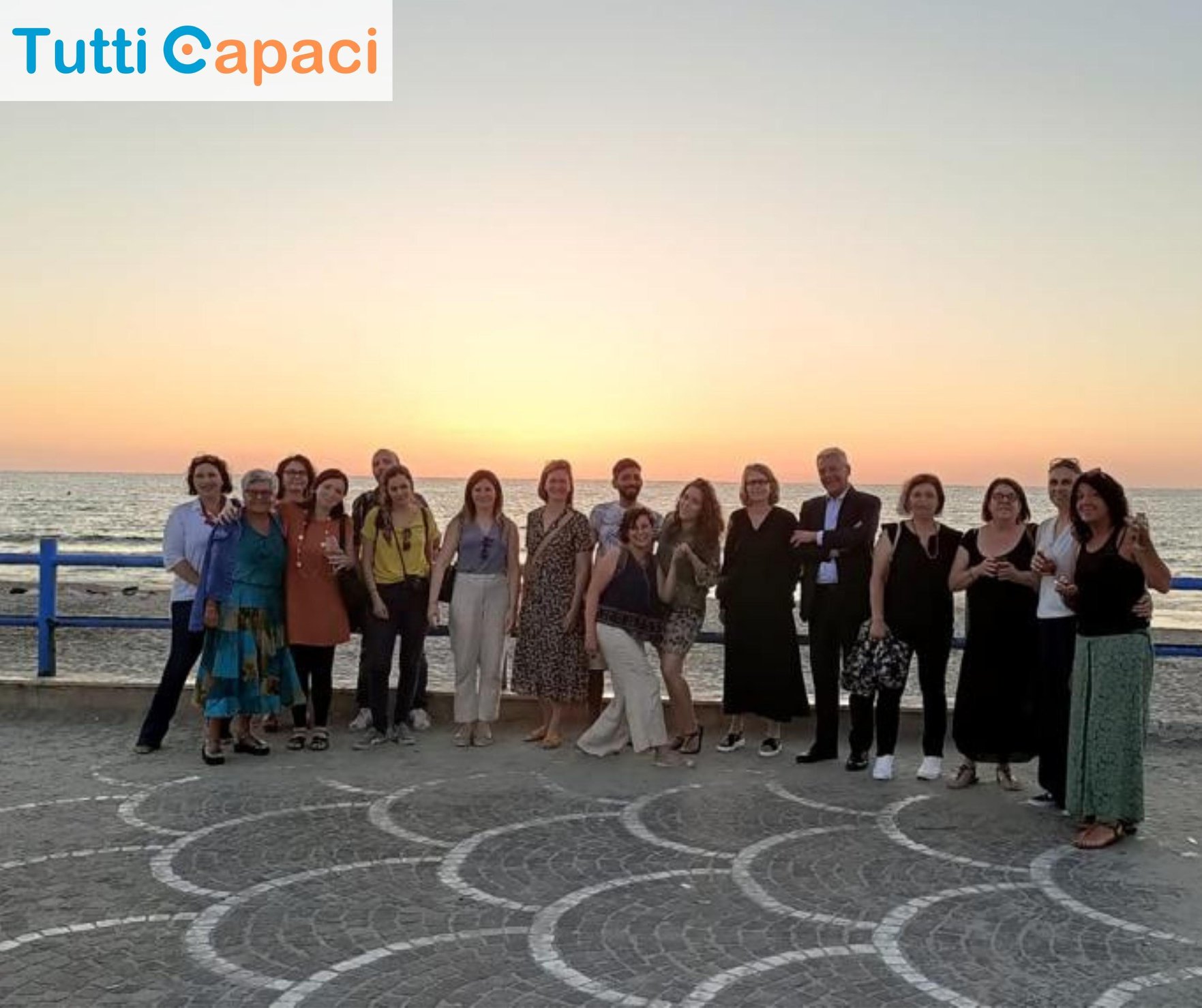
Capaci decided to replicate one of the best practices from the City of Mechelen, 'Buddies with refugees' and adjust it to their local context. So a person from the host community becomes a buddy to a newcomer in the city and they meet regularly, undertake activities, talk, learn with one another and bridge the migrants or refugee population with the other citizens of Capaci. 'Tuti Capaci' is already making the first steps, it's in an early phase, however initial observation could already be made. Two or three times a week there are open-air events, and buddies are invited to those so that they begin to be integrated into municipal activities. As a result, buddies are becoming integrated and more involved in the communal life of the town as active citizens – they are meeting people.
It's been proven that this model of buddies has the possibility of being implemented without resources coming from the municipality. It is a very flexible model – buddy pairs decide what they are going to do between themselves, and this has allowed the project to have a lot of different shapes and sizes within the project (to do with gender, ages, preferences etc). Pairs are really heterogenous - it’s not limited to women, to young people and so on. Lesson number one is they have chosen buddies well.
They have buddies who have negative stories in their past and are motivated to engage because of their personal situations. Some meet just because they had a link at the beginning. First meetings were with cocktails and they had a fund for that – they liked it. Food is a common language – passion for cooking, testing new recipes, preparing specialities, and swapping ideas for food. 8 out of 10 buddies are women, which is a key point as they have more will to meet. During the study visit they organised a get-together with the buddies, a Ukrainian and an Albanian woman talked about how vital the project had been for them in getting connected to the community and getting out and meeting people. So far, 10 associations have been involved in the project, a strong local stakeholder network is supported also with concrete political support. AICCRE is confident they can in a strategic way take Capaci as an example and replicate the good practice of inclusion in other cities across Italy.
![]()
![]()
![]()
![]()
14 - 16 June IncluCities Study Visit in Levadia, Greece (KEDE)
CEMR, represented by Durmish Guri, Director of Projects and Debora Minardi, Administrative and Finance Officer, the consultant Sue Lukes from Migration Work, together with the team from the mentor City of Fuenlabrada, Spain and FEMP travelled to Greece. KEDE and the city of Levadia hosted this intense three-day study visit around the mentoring theme: Mobilising citizens to develop tools for decent employment
and entrepreneurship for migrants and refugees.
The Mayor of Levadia, Mr Tagalegas welcomed all participants and thanked them for working together, especially for the solutions the city of Fuenlabrada offers for migrant inclusion. Migrants have been arriving in Livadia since 1989, and since 2016 in larger numbers, from Syria, Africa and Iraq, and the city helps integrate them via projects like this: in 2018 they were awarded for this work. Now the HELIOS programme offers services, including Greek learning, for refugees and they have a new programme for third-country nationals starting, and they work nationally and internationally. The city is in the Integrating Cities Network with 18 Greek cities and European programmes like this which share good practices. "We have to do this work at a local level, ensuring that all our residents enjoy a better quality of life, promoting solidarity and respect within a better society, and facing the challenges of marginalisation, respecting diversity, opposing discrimination and helping all become involved. Our philosophy is to prioritise all humans wherever they are from," emphasised the Mayor.
The main message from the mentor city and Spanish association was:
"We love being a mentor and it has been an honour: there are obvious differences but we share common interests, so we can connect different cities in spite of the difficulties presented by the pandemic. We can involve migrants as subjects of active citizenship not just objects, because it is necessary and benefits our cities. If we do not involve migrants that will be our loss."
Andreas Stamatakis from the Levadia Municipality gave a brief overview of the action plan. He pointed out that the biggest advantage of this project is that it enables them to build relationships with migrants and refugees, by asking them, for the first time, what problems they have in the inclusion process. One finding so far is that they identify learning Greek as being the greatest barrier to integration, rather than discrimination of the host community.
![]()
The Levadia action plan set up 8 steps to achieve 8 goals:
1. Establish a migrant panel in order to develop the city’s policies on migrant integration in collaboration with them and to empower the local community of migrants/refugees by increasing their participation in policy-making.
2. Collect information about the needs of migrants and refugees in order to create a database of needs and take proper actions to facilitate their access to various sectors (e.g., employment, education, entrepreneurship, cultural events)
3. Support the Community Centre to function as a Migrant Information Office to provide better services for migrants, promote refugees’ access to basic administrative services and help them with necessary legal documents. The centre already exists and is now offering these services, via the recruitment of an intercultural mediator, supported by the Migrant Panel, KEDHL (via the ESTIA project) and the Social Welfare Service Department.
4. Provide training programmes for migrants in order to improve migrants’ skills in various fields (winemaking courses, jewellery making, cultivation of aromatic and medicinal plants, beekeeping, making mosaics, cooking, etc). This is a continuous process but has been delayed by the pandemic.
5. Provide vocational programmes for migrants/refugees to offer employability opportunities to migrants who will stay in Greece so that they may eventually enter the labour market. This depends on national decisions in relation to the National Strategic Plan for the Integration of Migrants. A related proposal has been submitted by the Mayor of Levadia to the Greek Manpower Employment Organization.
6. Offer Greek language courses to improve Greek language knowledge. This has been delayed by the pandemic and is being pursued by the Lifelong Education Section of the Municipality and K.E.DH.L. (via HELIOS Project)
7. Conduct information campaigns against xenophobia and racism to reduce the possibility that racism and xenophobia take root in Levadia. This is a continuous process via specific pro programmes for students, leaflets and brochures, run by the Municipality of Livadia, K.E.DH.L.
8. Develop cultural activities within migrants’/refugees’ communities to promote different cultural identities, positive interaction between migrants and the local population, and showcase migrants’ talents. This will be done as a continuous process, through various cultural events organised by the Municipality of Livadia, K.E.DH.L. (ESTIA and HELIOS projects) and IOM. The wider aim here is to create a multicultural society altogether moving forward, with no discrimination, understanding the identity of all migrants and helping all citizens without leaving anyone behind.
During the study visit, participants met with Elena from Georgia and Ahmed from Afghanistan. Elena has been 5 years in Greece, is a qualified doctor and physiotherapist and works as a carer for a girl with profound disabilities. Ahmed has been in Livadia for 17 years and had a long-standing issue with his documentation. He would like to learn the language better and gain some new skills, maybe open his own business. There are 110 migrant-run businesses in Livadia but there is scope for more. They need help with forms and funding for that.
Mrs. Valia Athanasopoulou explained she has worked with KEDE for 20 years and started working on refugees in 2015 once a number of people started arriving to the islands and north and east of the country. KEDE created a committee on refugees and migrants to ensure that their 325 local councils could coordinate this work with the central government and develop clear roles. There were problems with not getting information on available projects and plans: a new ministry was eventually created in 2019. Levadia has been central to this, although not on the frontier, but mayors were interested and participated in ESTIA and HELIOS. Some other cities really did not want to help, even when funding was available, so KEDE coordinated efforts to get them get involved in these programmes. They have a continuing problem with undocumented migrants: people choose to remain hidden for years, often because they want to move on to other countries, so they don’t learn the language or use the structures in place. They have been working on this since 2015.
KEDE is keen to learn from others and pass on that knowledge, and hope Spanish colleagues can help. They hope everyone has learned something about Levadia, a city of 23,000 not like Fuenlabrada, which has a much longer history and a much bigger infrastructure. They are taking their first steps with limited economic resources and not much knowledge. Therefore projects like IncluCities are welcome and needed.
Ms Sue Lukes (MigrationWork facilitator) said Livadia has become a beacon within Greece, taking its place alongside the much larger cities, creating examples of good practice with very few resources. It is important to defend it and for this, it is important to mobilise citizens. "We visited two oracles in these few days, one in Delphi and one in Livadia. And they tell us something important about narrative. The Delphi oracle became famous all over the ancient world, it told a good story. The Livadia oracle, which seemed to produce advice and prophecy of the same standard, did not. The narrative is important. A hundred years ago over a million people arrived in Greece from Turkey and transformed the country. We have to tell these important and useful stories from our history, and use them to discuss these themes and principles."
